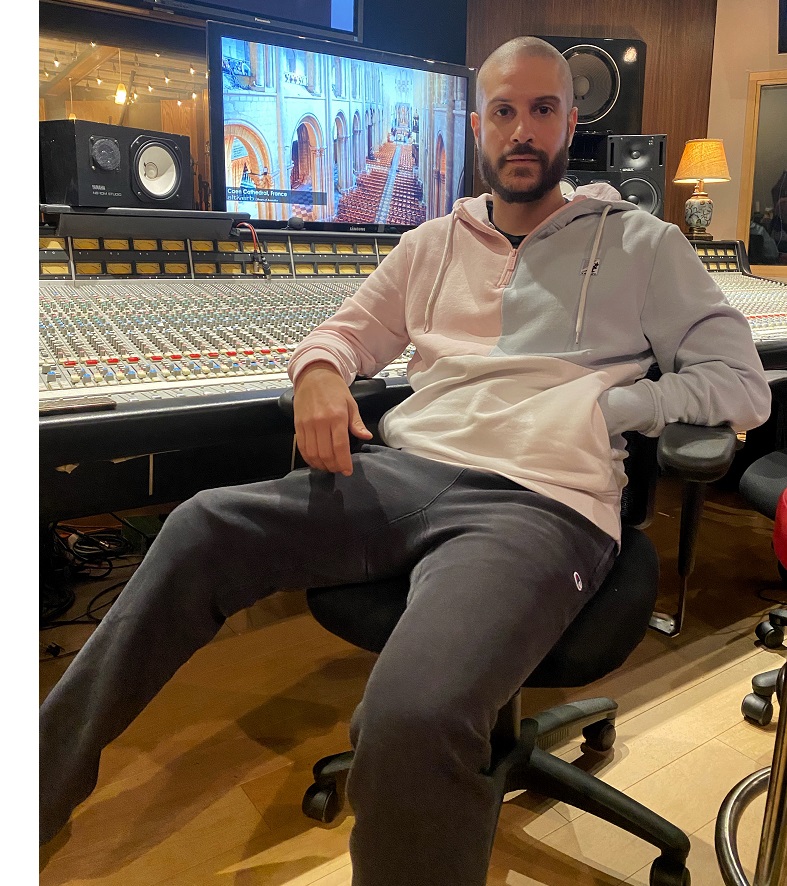
Just after moving into his new house last summer, Wes Green found a stray kitten on his front porch with a bone poking through one of her limbs.
“It looked like she had fallen off of something,” Green says. “She was too small [only two pounds] to have been hit by car in only one leg, and it didn’t look like a bite.”
He recognized the kitten, one of a litter that had been born underneath the porch at around the time Green moved in. He’d nicknamed this one Scout because she was the first one brave enough to wobble out from the nest and start exploring the world. Green knew the broken leg could easily prove fatal for an animal so young, so he calmed her down with some food, brought her inside, cleaned up the wound, and took her straight to the vet. The doc took one look and decided to amputate immediately.
A few days later, Green went under the knife himself for a similar procedure—a scheduled limb-revision surgery on his lower right leg. When he came home to begin several months of healing and rehab, Scout was waiting for him—an amputee odd couple, adapting together.
“Something about Scout having her amputation was really calming for me,” says the 36-year-old Green, who was born with foot and leg impairments. He had his initial amputation at just five weeks old—roughly the same age as Scout—and endured about a dozen subsequent surgeries through childhood. But he’d never had a major operation as an adult, and he was feeling pretty unsettled about it.
“My leg was causing hip and back problems,” he says, “so it was decided that I needed a second, higher amputation. It’s a pretty big procedure, and I knew I was going to be laid up for a long time. I was having some anxieties, for sure. Then Scout had her operation, and it just kind of normalized everything for me. I was more able to look at it like: ‘It’s just a procedure. I’ll be fine.’”
It helped that Scout made a rapid adjustment to life on three limbs. “She only struggled for about a week,” says Green. “She would wake up and see if she could stand, and when she couldn’t it would freak her out. She didn’t know why she couldn’t get her legs underneath her. That was the worst of her recovery.”
At a certain point Scout figured things out, adjusting not only to limb loss but also to the domestic routines of an indoor cat. She had never been inside a house before her injury, Green says, so household sounds and smells were foreign to her. Ditto the concept of the litter box. But her habits changed quickly, and Scout has been content and companionable ever since.
Her easy embrace of changed circumstances was an eye-opener for Green. Moreover, the convalescing kitty put him in an empathetic, caregiving frame of mind, which had a positive influence on his own recovery. Instead of pushing himself or setting expectations for how his experience ought to unfold, Green gave himself the same permission he’d granted to Scout: to heal on his own timetable and let nature take its course.
When he’s not rescuing injured cats or rehabbing from limb surgery, Green works as an independent music producer in Atlanta. Despite his youth he’s already an industry veteran, having scored his first studio jobs in his late teens. “I got lucky with timing,” he says. “The [recording] industry was switching over to running 100 percent on software, and I knew how to run the software. The career professionals at the time just didn’t know that stuff.” One of the early acts he worked with, a hip-hop band called Dem Franchize Boyz, had a radio hit, which gave Green’s credibility a boost. That paved the way for gigs with the Zac Brown Band, drum kit hero Travis Barker (of Blink 182 fame), and some other well-known acts. These days he’s focused on finding and launching new talent, such as alt-popsters Forrest Isn’t Dead and Jordan Danielle Harris. You can check out some of Green’s work on Instagram @wesleydoesit.
“Being an amputee requires some extra work,” Green wrote on Instagram this spring. “No one really ever shows you how to manage your disability, in my experience. So don’t stop educating yourself. Keep changing your process, and keep showing up every day.” He wasn’t specifically referring to Scout when he wrote that, but she might have been in the back of his mind. Because there’s no question she taught him a new trick or two about limb loss.
“She is extra-special to me,” Green says. “She has definitely touched me.”